In today's complex and rapidly changing business environment, organizations face a diverse array of risks that can significantly impact their operations, strategic objectives, and bottom line.
More than ever, effectively identifying, assessing, and managing risks has become critical for companies seeking to maximize business value. This is where trusted advisors like KPMG risk consulting shine through their advisory services.
In this article
Part 1: Overview of KPMG
KPMG is one of the Big Four accounting organizations and a global leader in professional services, including audit, tax, and advisory services. With over 219,000 professionals operating in 147 countries, KPMG leverages its deep industry knowledge and technical expertise to help clients mitigate risks, grasp new opportunities, and grow sustainably.
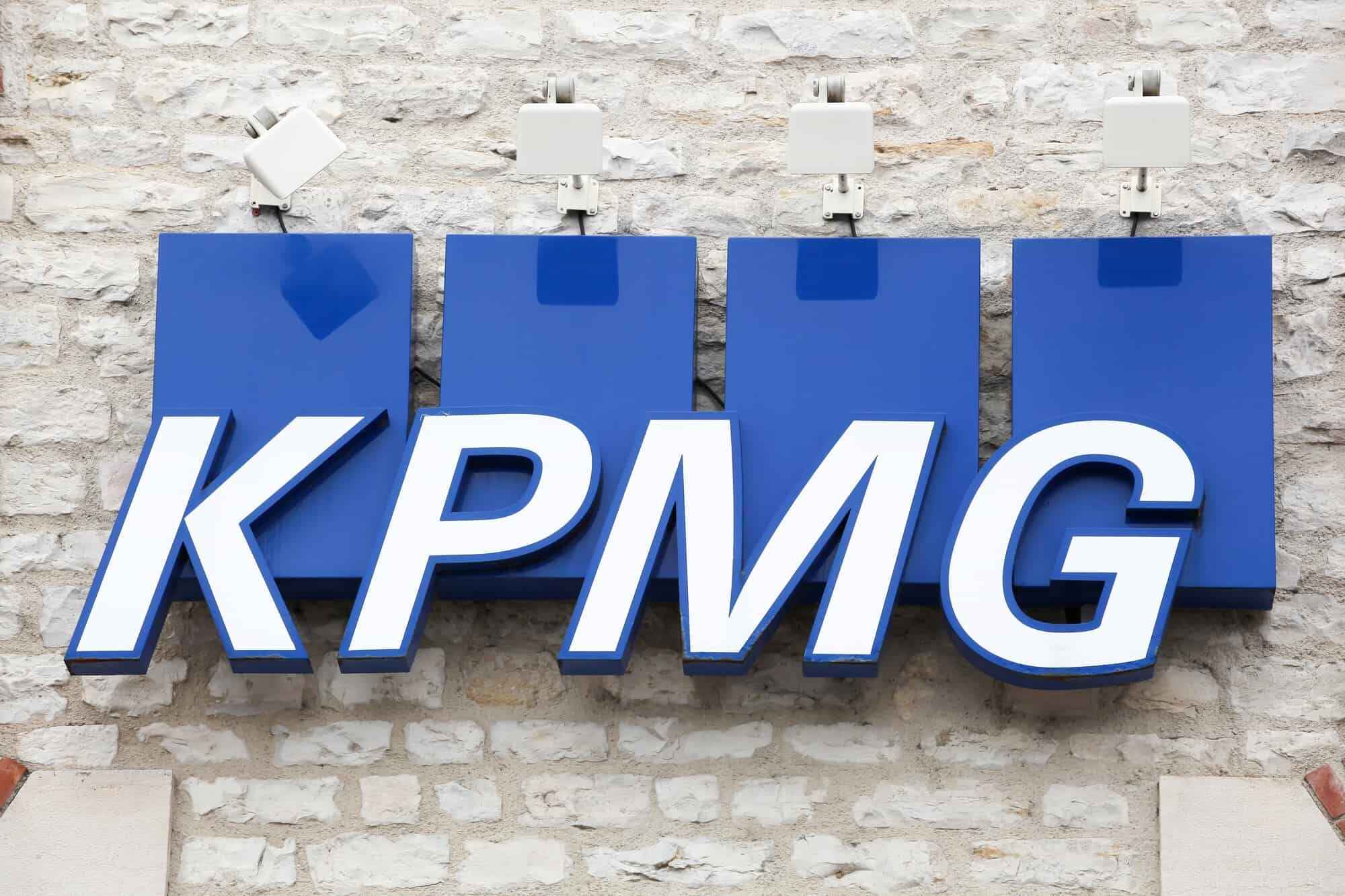
Part 2: What is KPMG Risk Management
KPMG Risk Management refers to the firm's services that help identify, measure, and mitigate the full spectrum of risks companies face. KPMG advisors take a holistic approach to risk that spans key domains such as operational, financial, strategic, regulatory, cybersecurity, technology, and reputational risks.
Within each domain, KPMG provides a range of risk consulting solutions, including:
- Risk governance design
- Risk appetite assessment
- Risk analysis and quantification
- Risk monitoring strategies
- Risk modeling and forecasting
- Risk control and mitigation
- Risk reporting framework
The goal is to embed robust risk management capabilities into an organization’s people, processes, and technologies. With KPMG, risk management becomes integrated across the enterprise and aligned with business strategy.
Part 3: Best Practices for KPMG Risk Consulting
KPMG advisors employ leading practices and methodologies to deliver maximum value from risk management initiatives. Here are some best practices KPMG utilizes when partnering with clients:
- Take an outside-in perspective – Evaluate risks from the viewpoint of key external stakeholders like customers, investors, and regulators.
- Leverage technology – Use analytics, automation, and AI to gain risk insights from data.
- Focus on culture – Instill a culture where risk is everyone’s responsibility.
- Align to strategy – Embed risk in strategic planning and decision-making.
- Adopt Agile methods – Use iterative approaches to continually adapt risk management.
- Communicate with impact – Contextualize and tell a compelling risk story to leadership.
- Collaborate across silos – Break down internal barriers for integrated risk management.
With a multifaceted approach, KPMG unlocks the full value of risk management for clients.
Part 4: Key Responsibilities of KPMG Risk Advisory
Risk advisors at KPMG have diverse skills and responsibilities focused on helping clients improve risk outcomes. Here are the key responsibilities of KPMG’s Risk Advisory professionals:
- Consult with business leaders to frame risk challenges and define desired outcomes.
- Conduct in-depth assessments to identify organizational risk exposures and maturity.
- Map risks to business objectives and set risk tolerance levels aligned to strategy.
- Design risk governance models encompassing people, processes, and systems.
- Develop quantitative risk measurement methodologies leveraging data and technology.
- Implement integrated risk reporting to provide insights to leadership.
- Establish risk monitoring procedures and early warning indicators.
- Advise on risk controls, disaster recovery, and mitigation techniques.
- Educate management and staff to adopt a risk-intelligent culture.
With end-to-end advisory services, KPMG Risk Management enables organizations to realize the upsides of risk-taking while minimizing downside threats.
Part 5: Creating a Risk Management Diagram with Ease Using EdrawMax
An impactful way KPMG risk consultants communicate a client’s risk framework is by developing risk management diagrams. A well-constructed diagram visually maps risk components, interactions, and information flows.
Edrawmax provides key advantages for KPMG professionals and clients:
- Intuitive and user-friendly interface - Easy for KPMG advisors and clients to quickly create diagrams even without prior experience.
- Professional templates - Includes an array of risk management diagram templates that can be easily customized.
- Drag and drop functionality - makes diagramming efficient by dropping shapes and connecting them with lines.
- Stylish design - Creates aesthetically pleasing diagrams with professional and modern color schemes, fonts, and styles.
- Multiple export formats - Diagrams can be exported in various file types (PNG, PDF, Word, Visio) for flexibility.
- Real-time collaboration - Enables concurrent editing so KPMG team members and clients can co-edit diagrams together.
Here are the steps for creating a risk management diagram using EdrawMax:
Step 1:
Launch the EdrawMax application on your computer. In the search bar, type "Risk Management" and select the appropriate template from the results.
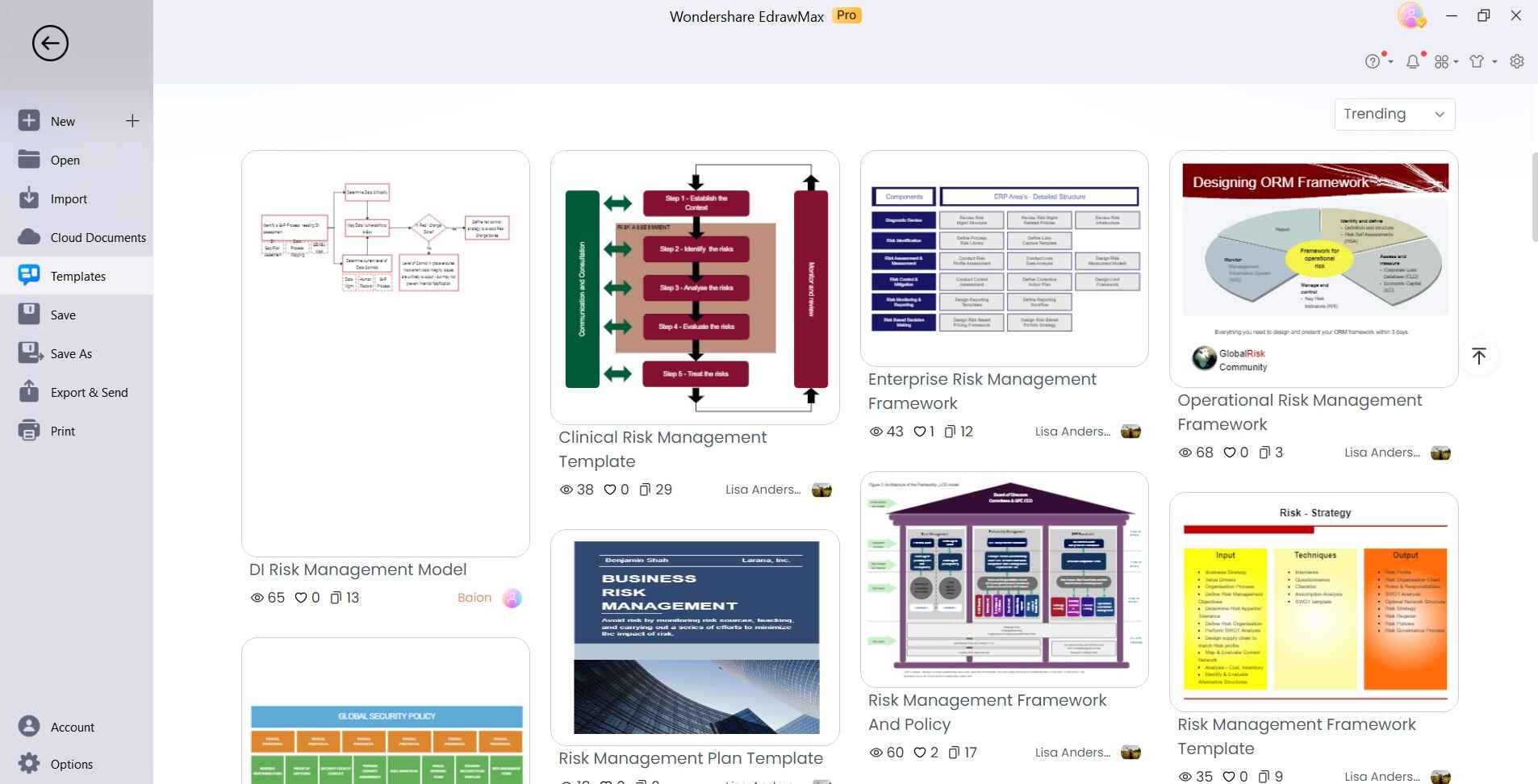
Step 2:
Once the template is open, you can customize it to suit your specific needs.
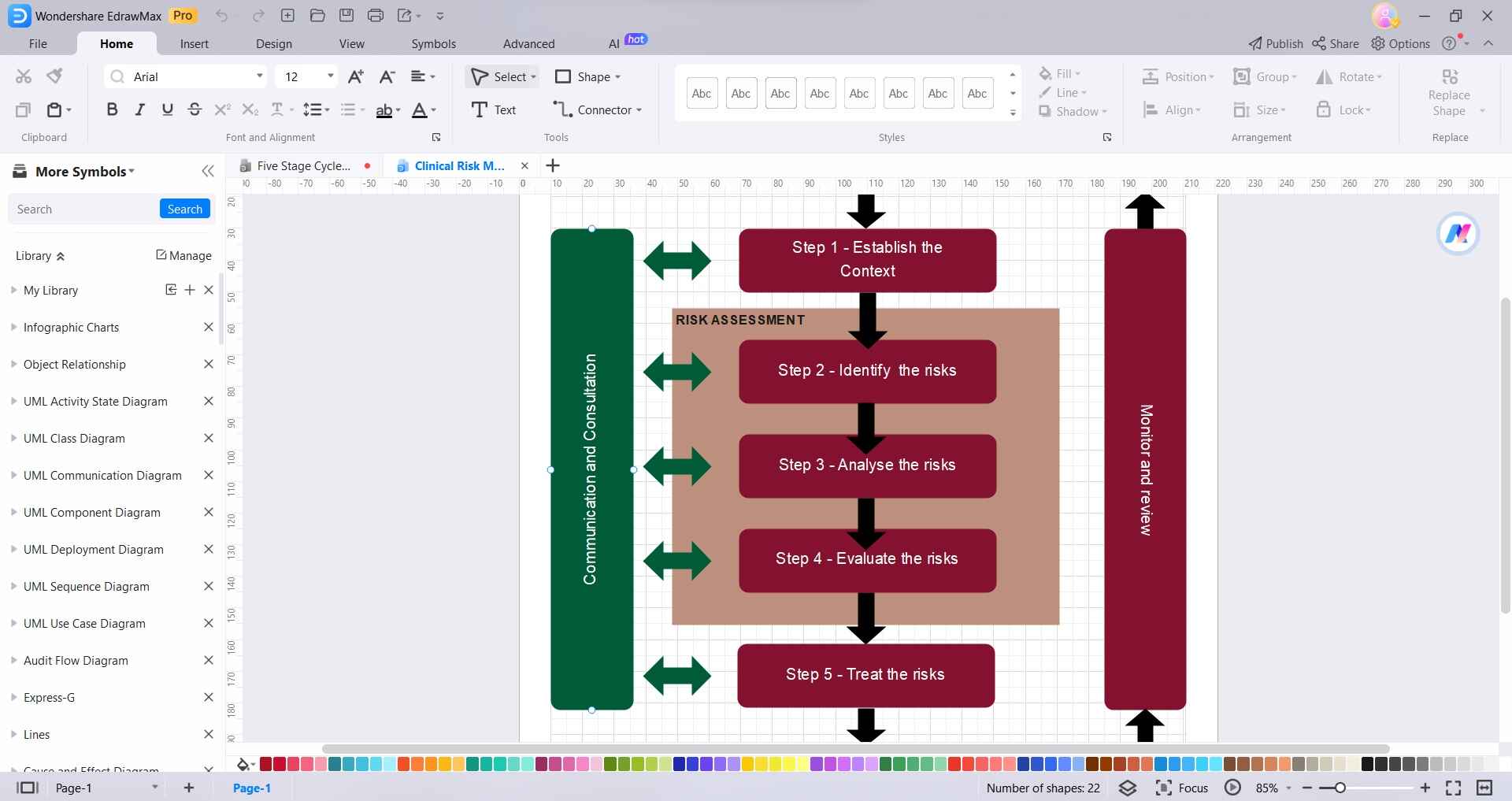
Step 3:
Use connectors or arrows to link different elements in the diagram, indicating relationships and flows.
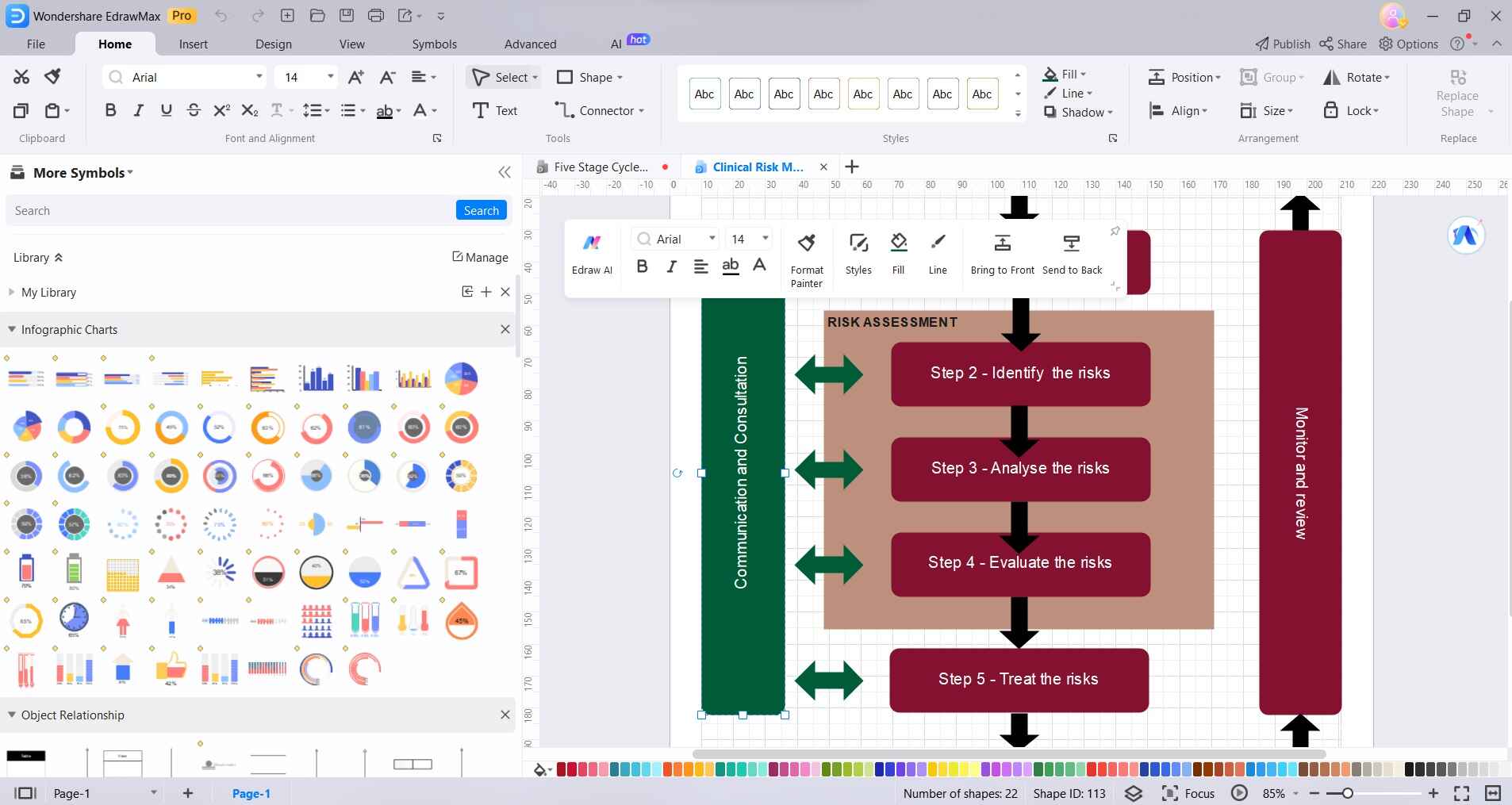
Step 4:
Adjust the overall appearance of the diagram using EdrawMax's formatting options. Change colors, fonts, and styles to make it visually appealing.
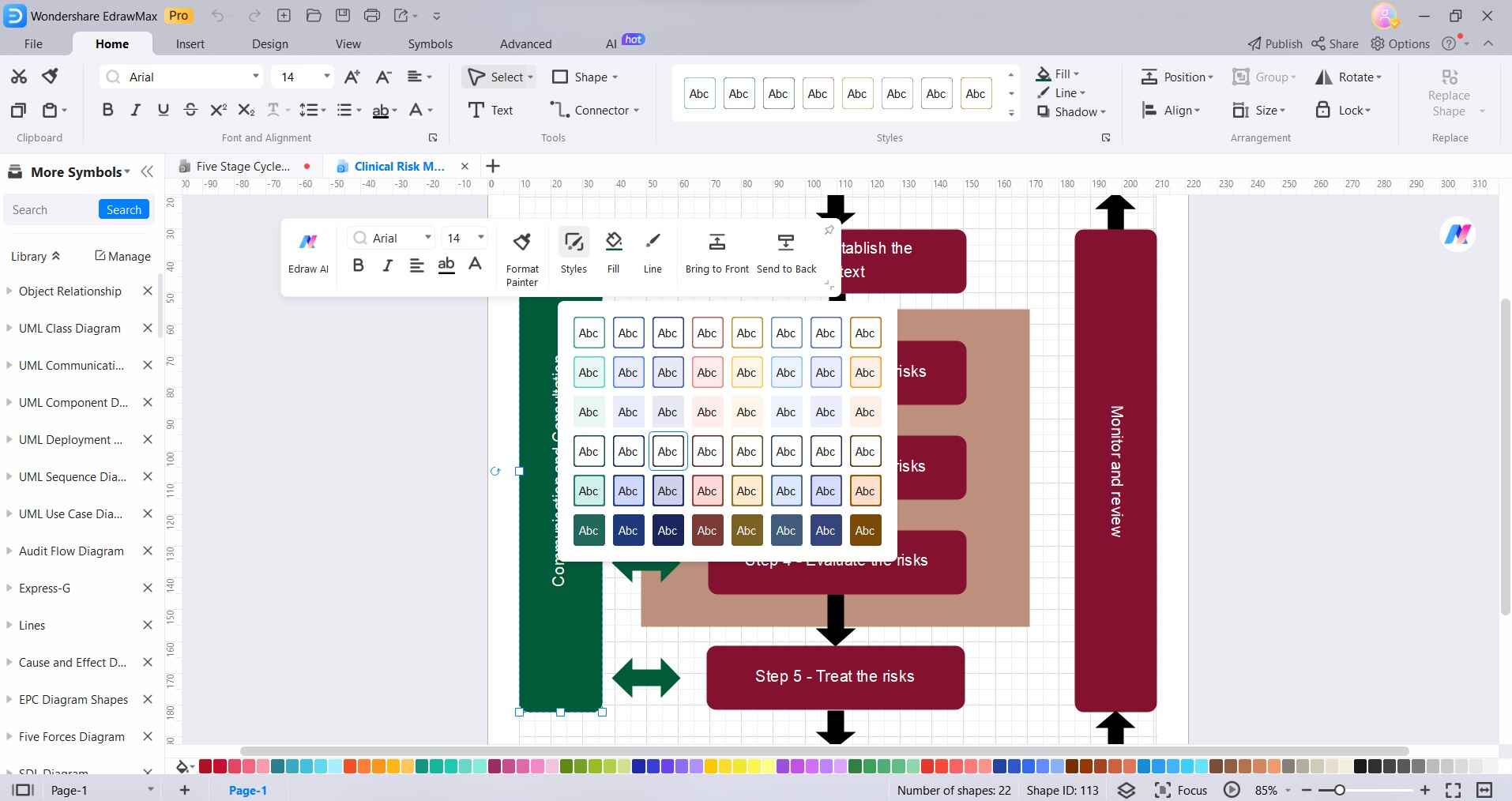
Step 5:
Click on "File" and then "Save" to save your diagram to your computer. You can choose to save it in different formats like EdrawMax file (.eddx) or export it as an image (.png, .jpg, etc.).
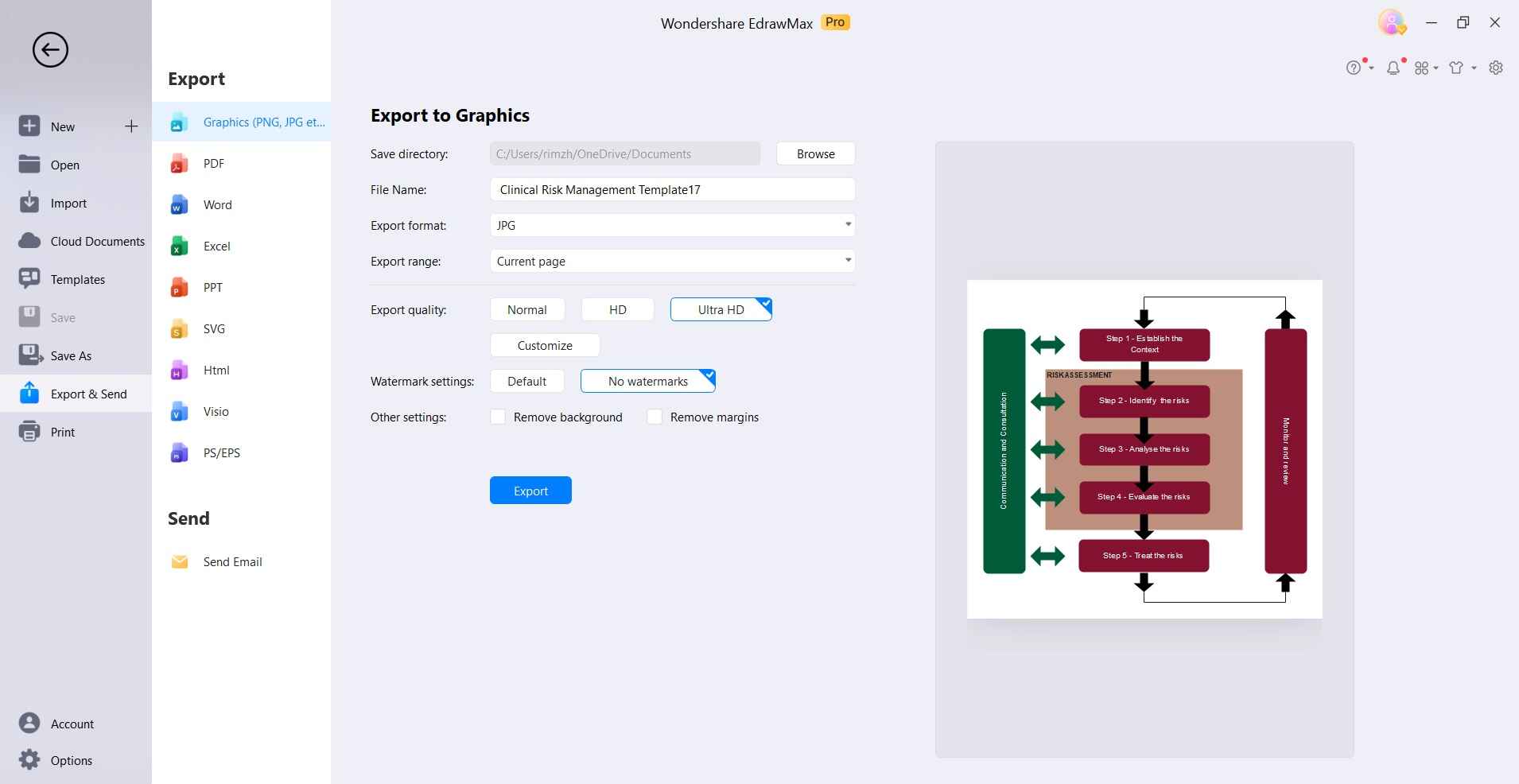
By leveraging EdrawMax’s powerful features, KPMG consultants can more effectively create risk diagrams that better communicate insights to client leadership teams. The tool makes diagramming efficient, impactful, and collaborative.
Conclusion
With disruption and uncertainty accelerating, organizations rely on KPMG’s deep expertise in risk consulting to achieve strategic goals. KPMG brings world-class capabilities, technologies, and methodologies to help assess risk from all angles and embed enterprise-wide risk management. Partnering with KPMG Risk Advisory allows companies to turn risk management into a driver of value, resilience, and sustainable growth.




